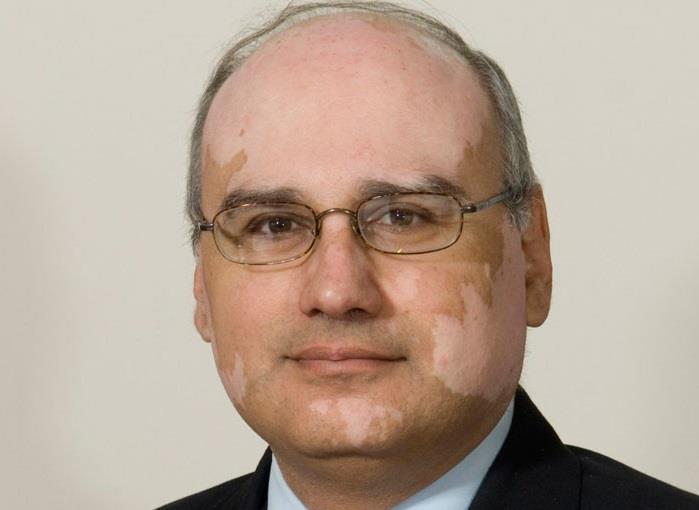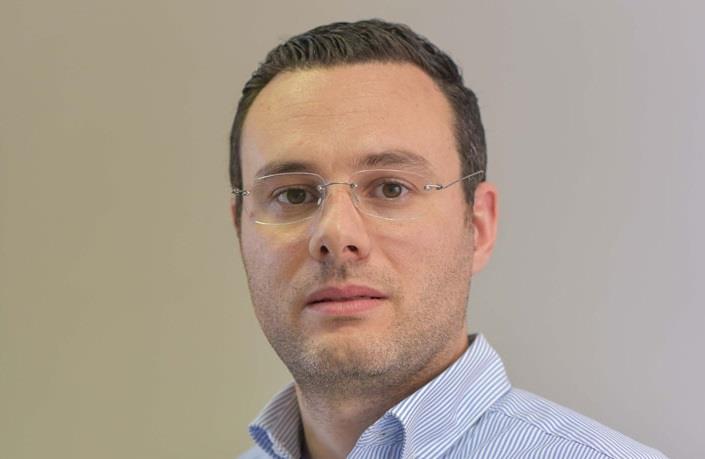Head of the Economics Department at the University of Malta Philip Von Brockdorff believes that the government’s increasing day-to-day expenditure needs to be matched by the strong economic growth experienced over the last few years. Failing this, government would have to impose measures to make up for lost revenue generated from high economic activity.
Visiting assistant lecturer and economist JP Fabri chose to focus however on the need to bolster specialised and skilled human resources, in view of the government’s push for specialised industries such as cryptocurrency and the creation of a blockchain cluster. He praised the tax-credit scheme for Master’s ad PhD students.
Both economists praised the current economic climate and the government’s push in this regard, while delving into the particular challenges from the sectors driving Malta’s economy.

Professor Philip Von Brockdorff
“The 2018 Budget presented on Monday contains many elements which are positive so that the economy can continue to grow at a strong pace, such as the included fiscal incentives.
This style of politics has brought with it an increase in consumption, leading in particular to higher profits for businesses. An increase in wages has been noted, however not at the same rate as the increase in profits.
Malta’s economy is an increasing number of foreign workers, the majority of whom are not earning high wages. For contractors, the presence of thousands of foreign workers is leading to reduced pressure for their wages to continue rising.”
Increased government expenditure: what does this say about efficiency?
“Through a trend of increasing consumption, extraordinary earnings from the sale of passports and income through taxation of iGaming companies and others registered locally, the aim for a budget surplus is being reached. Throughout all this, the fact remains that recurrent government expenditure has continued to rise absolutely. It would be good to question the level of efficiency of government operations, inclusive of its entities.
In order for targets to be reached, the budget is resting on sectors such as construction, iGaming, the financial services sector and tourism. These sectors all have their own particular challenges which have not been outlined in the budget. It would be good for government to provide clear direction for each of these sectors. Within the construction industry, while we are seeing a steady level of economic activity, care must be taken so that this sector does not lead to the environmental degradation of Malta’s towns and villages, eventually having a negative impact on the overall quality of life for citizens. Another question to ask is how sustainable the current activity within the construction sector is.
Onto the iGaming and financial services sector, a number of opportunities are present however there are also big challenges to face, such as tax harmonisation initiatives and others aimed at combating ‘aggressive tax avoidance’.”
Looking at quality tourists, rather than the quantity of tourists
“Turning to tourism, I agree with the position of the Malta Hotel and Restaurant Association’s when it called for pressing further on the quality of tourists coming to Malta rather than the number. Initiatives such as Valletta 2018 will help to attract higher quality tourists.
Infrastructure certainly cannot handle an ever-growing number of tourists, however this does result in an increase of economic activity. Everything should be weighed and balanced”.
Onto inflation, Von Brockdorff noted that the this will stay below the 2 per cent mark, and while a new Household Budgetary Survey is to be expected, it would be beneficial to analyse which products and services are leading to higher spending.
Why are foreign processed foods getting more expensive?
“The price of food has continued to increase and we should be questioning why. Processed products from Malta have remained stable in price, such as milk, however this is not the case for those products that are imported from overseas. The budget made no mention about this however it would be beneficial to have an objective discussion on how to ensure that food prices remain comparable to other countries.”
Von Brockdorff went on to comment about the debt burden – which government is aiming to reduce to 51 per cent of GDP in 2018.
“Again, this is a continuation of politics which, through economic growth, is relatively leading to an increase in recurrent government expenditure disproportionate to the level of economic growth. It is therefore necessary for economic growth continues to grow at the same pace it has been over the past few years. Failing this, the government will have to introduce new measures to make good on taxes and other income that is being generated because of the present level of economic activity”.

JP Fabri, Economist and Visiting Assistant Lecturer at the University of Malta
“The 2018 Budget presented by the Government on Monday builds on Malta’s strong and robust economic performance. Over the past year, Malta has consistently registered good economic results outperforming our European counterparts and euro area averages. With buoyant economic growth, record-low unemployment levels, strong employment growth and a registered government surplus, Malta’s economy is certainly experiencing a boom across a number of sectors.”
Stepping in where the market has failed
“Apart from being an annual accounting exercise, the budget is an economic tool through which government seeks to, amongst others, correct for market failures; seek a balance between present needs and future requirements and sow the seeds for the future. It aims to do all this within the constraints of public finance and with the aim of sustainable development.
“The Budget seeks to sustain this current economic performance through a number of measures and incentives. The introduction of VAT grouping, the concept of notional interest, the new gaming regime and the focus on setting-up a blockchain cluster in Malta are all important measures that seek to sustain and reinvent existing industries. Further tax credits under the MicroInvest scheme will also support SMEs in their investments. Targeted property-related schemes will also continue supporting the already buoyant property sector.
Challenges in finding trained human resources
“As the economy continues to grow and attract new high value sectors, the challenge of finding adequately trained human resources will become more acute and this can become a serious impediment into the future. To this end, Government has launched schemes to incentivise further post-graduate studies and to attract high-talent individuals from abroad.
However, Malta’s educational system remains a key challenge and more focus is needed to continue decreasing the school leaver rate and increasing the ratio of tertiary students in Malta. This will sustain future growth. In addition, the budget also targeted the social and environmental dimensions through further investments in health and general infrastructure.”
Malta must continue to invest in infrastructure, competitiveness, productivity
“It also aspires to address some key market failures such as waste, traffic and social housing. In addition, further investment in primary and acute healthcare together with health prevention have also been targeted in the Budget.
“The Budget is just one of the tools that Government has. Economic management and development are complex and challenging. On the back of the current positive economic performance, Government needs to continue investing in Malta’s infrastructure, competitiveness and productivity. Various sectoral policies have been launched which will continue supporting Malta’s economy and this Budget is another step in this direction.”